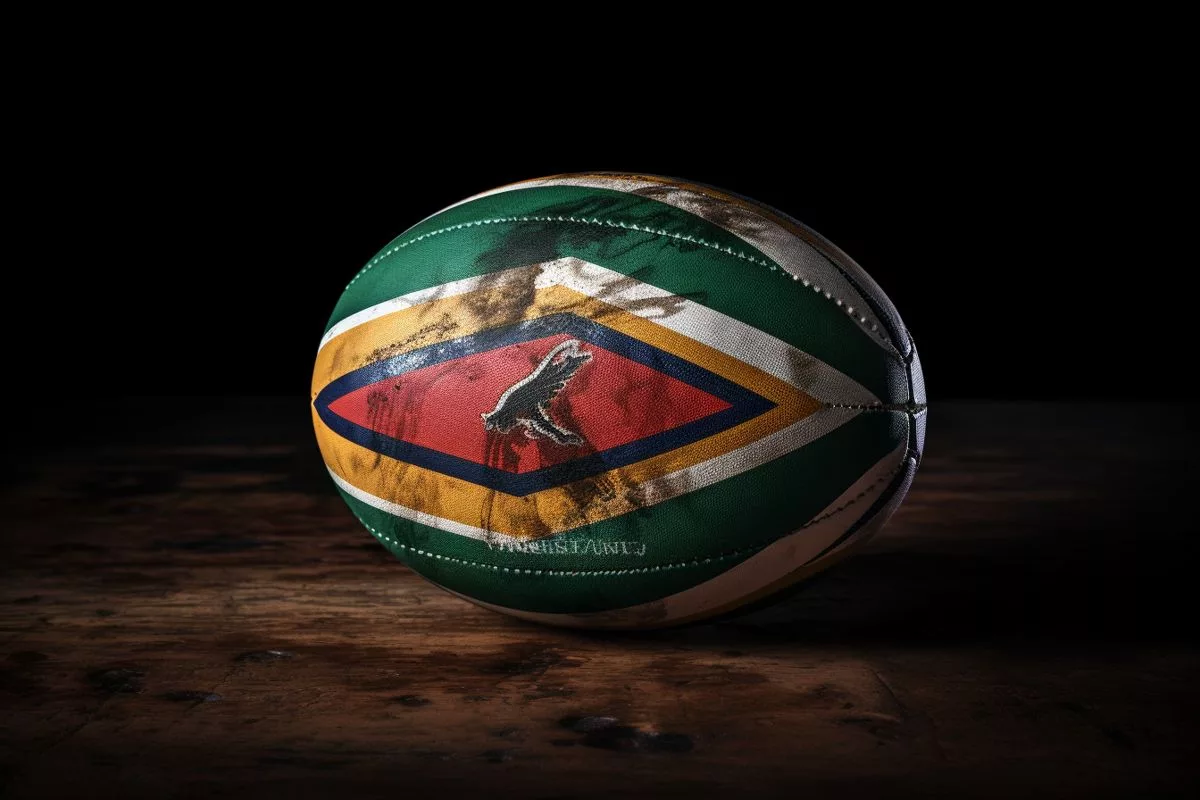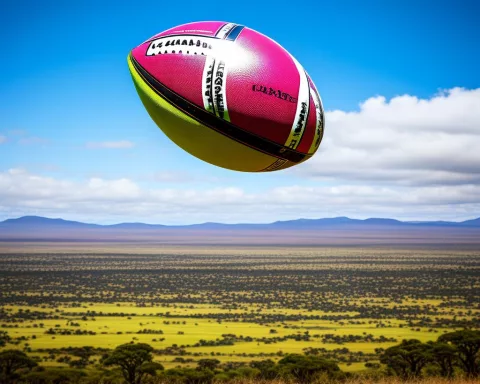The Springboks, South Africa’s national rugby team, are undergoing a period of transformation under the guidance of new head coach Rassie Erasmus. He has identified several players who are unlikely to feature in the 2027 Rugby World Cup, signaling a significant evolution for the team. The rise of newer talents, such as Malcolm Marx and Joseph Dweba, brings hope for a bright future for the Springboks. As the team transitions towards a new era, uncertainty and anticipation mingle to create a captivating narrative of evolution and rejuvenation.
The Evolution of the Springboks: A Transition Towards a New Era
Who is the new head coach of the Springboks and what changes has he brought to the team?
Rassie Erasmus is the new head coach of the Springboks, leading the team through a pivotal period of transition. He has pinpointed several players who are unlikely to feature in the 2027 Rugby World Cup, signaling a significant evolution for the team. The rise of newer talents, such as Malcolm Marx and Joseph Dweba, heralds a bright future for the Springboks.
A Period of Transformation
As constant as the ebb and flow of the tides, transformation in the sphere of international rugby is an inherent aspect of the game’s lifecycle. This is a reality currently being embraced by the Springboks, South Africa’s esteemed national rugby union team. The team is navigating through this pivotal period under the guidance of their new head coach, Rassie Erasmus, who is meticulously charting the course for the team’s future.
Erasmus’s assumption of the role as head coach signals the dawn of a fresh epoch for the Springboks, a period filled equally with thrilling opportunities and formidable challenges. He has recently pinpointed several players who, due to their advancing careers, are unlikely to feature in the 2027 Rugby World Cup (RWC) being held in Australia. This prediction marks a significant evolution for the team, a process punctuated by the curtain call of celebrated careers and the rise of promising newcomers.
The Uncertainty of Key Players
This predicted shift in player engagement brings to light a collection of vital questions about the team’s trajectory. Included in the players mentioned by Erasmus is the solid cornerstone of the team, Eben Etzebeth, celebrated for his intimidating stature and superb physical prowess. The coach’s hesitance regarding Etzebeth’s chances of participating in the forthcoming RWC stirs a feeling of expectancy concerning the future shape of the team.
Bongi Mbonambi, another distinguished fixture in the Springboks, faces a similar predicament. As his 36th birthday looms on the horizon, Mbonambi’s possible contribution to the upcoming World Cup is a matter of speculation. While his situation mirrors that of Deon Fourie and Duane Vermeulen, who defied age limitations to offer valuable contributions to the game, Mbonambi’s lengthy career, paired with the possibility of facing more grueling years in rugby, casts a pall of uncertainty over his future in the international scene.
The Rise of a New Generation
When considering prospective successors for these two pillars of the team, attention gravitates towards the Springboks’ fresher talents. Malcolm Marx and Joseph Dweba, who will be in the prime of their thirties come 2027, are touted as probable replacements provided they sustain their form and fitness. Their triumphant track record in the sport so far implies they have the requisite experience and expertise to fill the shoes of their experienced predecessors.
The cycle of transformation, however, doesn’t culminate here. Anticipated retirements herald new prospects for younger Springboks to flourish. Akker van der Merwe, for instance, is considered a probable successor for the hooker role, given his current stellar performance. Yet, his age groups him with the older cadre of players, hinting that a more likely enduring replacement could be Johan Grobbelaar.
In the locks division, Ruan Nortje and the budding talent, Lion Ruan Venter, are already being touted as potential inheritors of the mantle. These individuals have shown substantial potential, making them viable candidates for future positions in the national squad.
A New Chapter Unfolds
As the Springboks traverse through this shift, it is paramount to acknowledge that change signifies not merely a termination but also a commencement. The departure of the old guard paves the way for the younger generation to rise and etch their mark on international rugby. The Springboks’ future is an intricate tapestry of uncertainty, anticipation, and potential, a true reflection of the vibrant nature of the sport and the unwavering quest for excellence that characterizes it.
The unfolding narrative of the Springboks’ journey towards the 2027 Rugby World Cup is intriguing, telling a story of evolution and rejuvenation. As the team sails through the departure of the old and the emergence of the new, the unfolding chapter in the Springboks’ distinguished history promises to be captivating.
-
What is the Springboks rugby team?
The Springboks are South Africa’s national rugby team and are one of the most successful teams in rugby union history, having won the Rugby World Cup twice, in 1995 and 2007. -
Who is the new head coach of the Springboks and what changes has he brought to the team?
Rassie Erasmus is the new head coach of the Springboks and he is leading the team through a period of transformation. He has identified several players who are unlikely to feature in the 2027 Rugby World Cup, signaling a significant evolution for the team. The rise of newer talents, such as Malcolm Marx and Joseph Dweba, heralds a bright future for the Springboks. -
What is the significance of the predicted shift in player engagement?
The predicted shift in player engagement brings to light questions about the team’s trajectory, specifically regarding the future shape of the team and the uncertainty surrounding key players such as Eben Etzebeth and Bongi Mbonambi. -
Who are some of the newer talents in the Springboks team?
Malcolm Marx and Joseph Dweba are two newer talents in the Springboks team who are touted as probable replacements for older players, provided they sustain their form and fitness. Other newer talents include Akker van der Merwe, Ruan Nortje, and Lion Ruan Venter. -
How does this period of transformation affect the Springboks’ future?
As the Springboks transition towards a new era, uncertainty and anticipation mingle to create a captivating narrative of evolution and rejuvenation. The departure of the old guard paves the way for the younger generation to rise and etch their mark on international rugby, promising a bright future for the team. -
What is the significance of the Springboks’ journey towards the 2027 Rugby World Cup?
The Springboks’ journey towards the 2027 Rugby World Cup is a story of evolution and rejuvenation, telling a tale of the team’s transition towards a new era. As the team sails through the departure of the old and the emergence of the new, the unfolding chapter in the Springboks’ distinguished history promises to be captivating.












